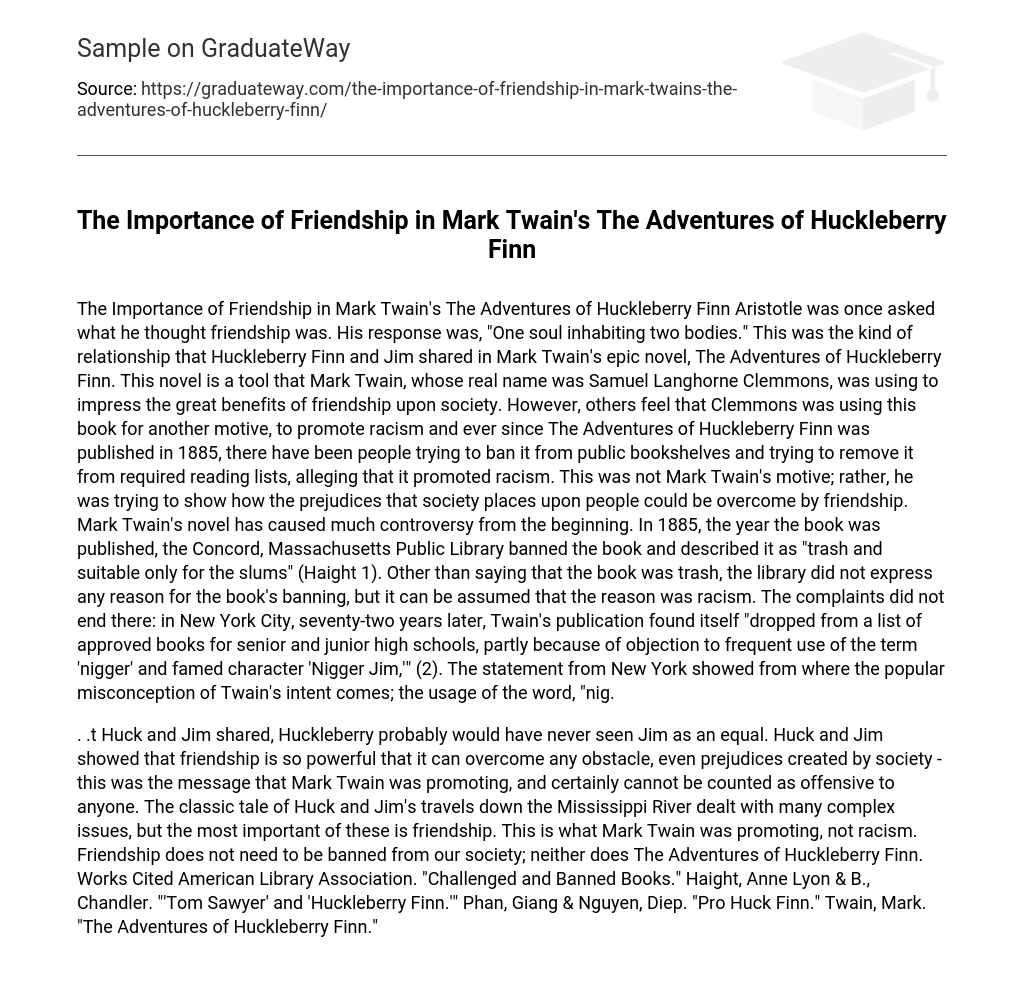Aristotle defined friendship as “One soul dwelling in two bodies.” In Mark Twain’s The Adventures of Huckleberry Finn, the connection between Huckleberry Finn and Jim exemplifies this kind of bond. Through his novel, Mark Twain (Samuel Langhorne Clemmons) emphasizes the important advantages of friendship in society. Nevertheless, some argue that Clemmons wrote this book with a concealed motive – to endorse racism. Consequently, this controversy has persisted throughout history.
The Adventures of Huckleberry Finn, published in 1885, has consistently faced opposition and attempts to ban it from required reading lists due to claims that it promotes racism. However, Mark Twain’s intention was actually the opposite – he aimed to depict how friendship can overcome societal prejudices. This novel by Twain sparked controversy since its publication. For instance, in 1885, the Concord, Massachusetts Public Library banned the book and labeled it as “trash” only suitable for slums (Haight 1).
The book was banned by the library without giving a specific reason, but it was implied that racism played a role. Additionally, 72 years later in New York City, objections arose regarding Twain’s publication and it was taken off the list of approved books for senior and junior high schools. This decision was influenced by the frequent use of the term “nigger” and the inclusion of the character referred to as “Nigger Jim.” (2)
The statement from New York revealed the source of the misconception surrounding Twain’s intent: the use of the word “nigger” that Huck and Jim shared. Without their friendship, Huckleberry most likely would not have viewed Jim as an equal. Huck and Jim exemplified the strength of friendship in overcoming societal prejudices, conveying the message Mark Twain intended to promote. This message is in no way offensive to anyone.
The Adventures of Huckleberry Finn, a classic tale about Huck and Jim’s journey down the Mississippi River, tackles numerous complex issues. However, the central theme that Mark Twain emphasizes is friendship, not racism. The promotion of friendship should not be excluded from our society, and neither should this novel.
Works Cited
- American Library Association. “Challenged and Banned Books.” Haight, Anne Lyon & B., Chandler.
- “‘Tom Sawyer’ and ‘Huckleberry Finn.’” Phan, Giang & Nguyen, Diep. “Pro Huck Finn.”
- Twain, Mark. “The Adventures of Huckleberry Finn.”





